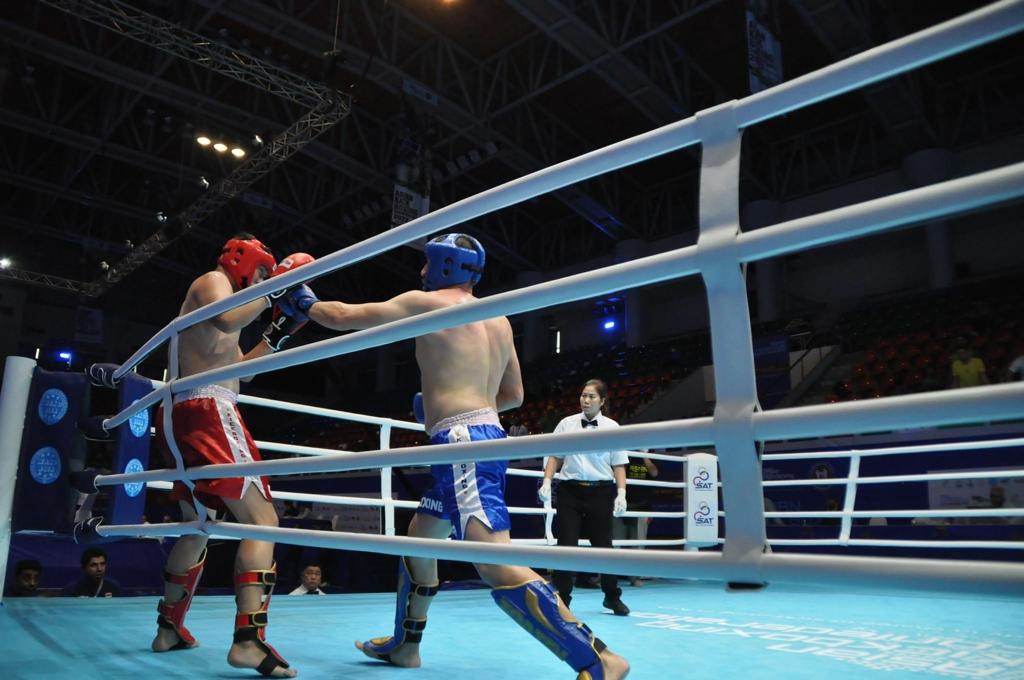As a ring-style athlete participating in the World Association of Kickboxing Organizations (WAKO) events, maintaining your weight within the prescribed limits is as crucial as the fight. Checking your weight every morning of the competition can be daunting, and fluctuating weight can affect your performance and health. To help you navigate through this challenge, this blog post provides practical tips and strategies to effectively manage your weight during the competition days.
The First and Most Important Recommendation:
In the fiercely competitive kickboxing world, athletes often find themselves in a race against the scale. Managing weight is crucial to preparing for World Association of Kickboxing Organizations (WAKO) events. Unlike professional MMA, Boxing, Kickboxing, and Muay Thai, where athletes typically have at least a day to recover post-weigh-in, WAKO Kickboxing, much like other amateur sports such as IBA Boxing, IFMA Muay Thai, Judo, and Wrestling, may require athletes to compete immediately after weigh-ins, depending on their pool. This leaves no room for drastic weight cuts and immediate recovery.
Therefore, the best approach for WAKO athletes is to target their weight category a few months before the competition and gradually reduce their weight over a more extended period. This allows athletes to acclimatize their bodies to lower weight and maintain optimal health and performance levels. By reaching a natural weight well before the competition, athletes can focus on refining their skills and strategies instead of struggling with last-minute weight loss.
Now, let's delve into the practical steps athletes can follow to manage their weight effectively during competition days.
Start Your Day Right
Your first meal sets the tone for what's to follow. Begin with a healthy, balanced breakfast with proteins, complex carbohydrates, and healthy fats. This will provide you with the energy to perform and keep you satiated, curbing unnecessary snacking.
Hydrate Smartly
Hydration is vital for optimal physical performance. However, drinking large amounts of water can temporarily increase your weight. It's a delicate balance, so aim to hydrate smartly. Sip on water throughout the day, but cut back in the evening. Also, consider including electrolytes in your fluid intake to replace those lost during training and fights.
Portion Control
Even the healthiest foods can contribute to weight gain if eaten in large quantities. Watch your portion sizes and try to consume smaller, more frequent meals throughout the day. This can help keep your metabolism active and prevent overeating.
Choose Low-Sodium Foods
High-sodium foods can cause water retention and increase your weight. Opt for low-sodium options to avoid unexpected weight spikes, especially during competition days.
Light Physical Activities
Incorporate light physical activities like walking or gentle yoga during the competition days. These activities can help keep your metabolism active without depleting your energy reserves needed for the fight.
Regular Weight Checks
Monitor your weight multiple times during the day. This helps you stay aware and make necessary dietary or activity adjustments to stay within your weight category.
Rest Well
Ensure you get a good night's sleep. Poor sleep can disrupt your metabolism and increase hunger hormones, leading to potential weight gain.
It's essential to remember that the strategies outlined above are general guidelines and may only work for some. Listen to your body and adjust accordingly. The goal is to maintain weight without compromising energy levels or performance. Effective weight management during competition days requires careful planning and discipline. Still, with the right approach, it's a victory you can confidently claim every morning.
Additional Guide for reading more:
The Importance of High-Quality Protein Intake According to a study by Stuart M. Phillips et al., high-quality protein intake is crucial for athletes. It not only aids in weight management but also promotes healthy aging, appetite regulation, and athletic performance. Therefore, as a WAKO athlete, you should ensure that your diet includes high-quality protein sources like lean meats, dairy, eggs, and legumes.
Implementing a Weight Management Control Program A paper by G. Artioli et al. discusses the need for a weight management control program in sports like judo, similar to kickboxing. The article suggests that competitions should begin within 1 hour after the weigh-in, athletes should be allowed to weigh in only once, and rapid weight loss and artificial rehydration methods are prohibited during the entire competition day. This approach could also benefit WAKO athletes, helping to ensure health and safety while maintaining competitive performance.
Role of Nutrition in Performance Enhancement and Post-Exercise Recovery A research paper by K. Beck et al. highlights the importance of individualized dietary advice for athletes. This includes daily dietary and specific advice before, during, and after training and/or competition. As a WAKO athlete, you must consult a nutritionist or dietitian who can provide personalized advice based on your needs and goals.
Managing Emotional Eating A study by T. Devonport et al. discusses the concept of emotional eating in the context of elite sports. Emotional eating can compromise functional eating goals and lead to weight gain. As an athlete, it's essential to be aware of emotional triggers that may lead to overeating and to develop strategies to manage these effectively.
Remember, every athlete is unique, and what works for one person may not work for another. Listening to your body and adjusting your diet and exercise routine as needed is essential. With the right approach, you can effectively manage your weight and perform best during WAKO competitions.





